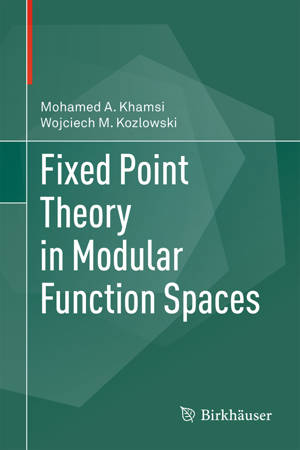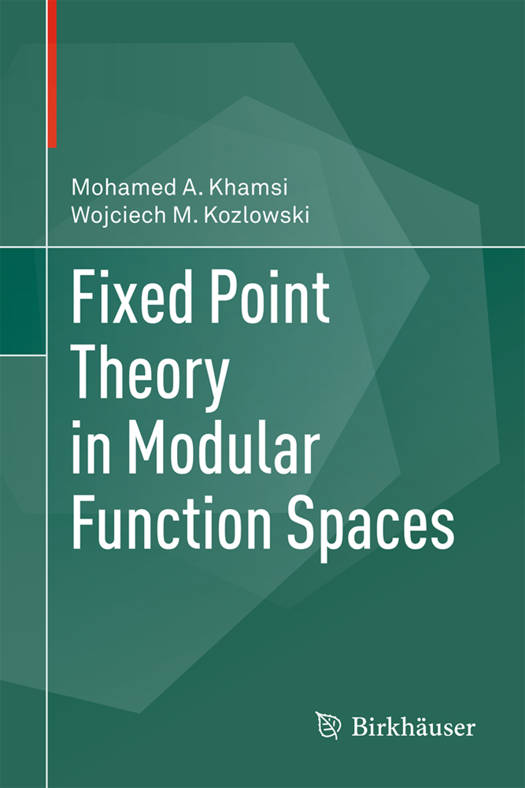
- Afhalen na 1 uur in een winkel met voorraad
- Gratis thuislevering in België vanaf € 30
- Ruim aanbod met 7 miljoen producten
- Afhalen na 1 uur in een winkel met voorraad
- Gratis thuislevering in België vanaf € 30
- Ruim aanbod met 7 miljoen producten
Zoeken
Fixed Point Theory in Modular Function Spaces
Mohamed A Khamsi, Wojciech M Kozlowski
Hardcover | Engels
€ 104,95
+ 209 punten
Uitvoering
Omschrijving
This monograph provides a concise introduction to the main results and methods of the fixed point theory in modular function spaces. Modular function spaces are natural generalizations of both function and sequence variants of many important spaces like Lebesgue, Orlicz, Musielak-Orlicz, Lorentz, Orlicz-Lorentz, Calderon-Lozanovskii spaces, and others. In most cases, particularly in applications to integral operators, approximation and fixed point results, modular type conditions are much more natural and can be more easily verified than their metric or norm counterparts. There are also important results that can be proved only using the apparatus of modular function spaces. The material is presented in a systematic and rigorous manner that allows readers to grasp the key ideas and to gain a working knowledge of the theory. Despite the fact that the work is largely self-contained, extensive bibliographic references are included, and open problems and further development directions aresuggested when applicable. The monograph is targeted mainly at the mathematical research community but it is also accessible to graduate students interested in functional analysis and its applications. It could also serve as a text for an advanced course in fixed point theory of mappings acting in modular function spaces.
Specificaties
Betrokkenen
- Auteur(s):
- Uitgeverij:
Inhoud
- Aantal bladzijden:
- 245
- Taal:
- Engels
Eigenschappen
- Productcode (EAN):
- 9783319140506
- Verschijningsdatum:
- 7/04/2015
- Uitvoering:
- Hardcover
- Formaat:
- Genaaid
- Afmetingen:
- 156 mm x 234 mm
- Gewicht:
- 535 g

Alleen bij Standaard Boekhandel
+ 209 punten op je klantenkaart van Standaard Boekhandel
Beoordelingen
We publiceren alleen reviews die voldoen aan de voorwaarden voor reviews. Bekijk onze voorwaarden voor reviews.








